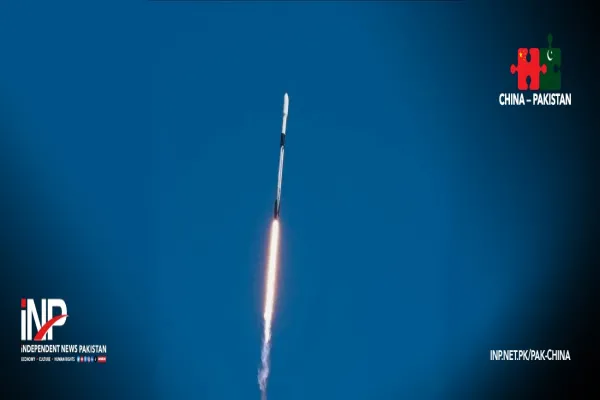i NEWS PAK-CHINA
China’s hybrid oilseed to help ease edible oil shortage in Pakistan, China Economic Net (CEN) reported on Monday. According to Zhu Xiaobo, executive member of the Asia and Pacific Seed Association and General Manager of Wuhan Qingfa Hesheng Seed Company, hybrid canola variety has been planted in Pakistan on about 10,000 hectares of land, covering around 6000 households. In the next three to five years, we expect it to expand to over 40,000 hectares and provide more, healthier edible oil to Pakistani people”, Ms. Zhu Xiaobo told CEN in an interview.
Edible oil shortage has long been a hot topic in Pakistan, which imports edible oil worth $250 million annually, accounting for 75% of its entire consumption.
The hybrid canola developed by the company and planted in Bhakkar,Multan, Draya Khan, Chishtian, etc. of Punjab, features earlier maturation, short strain, and low content of erucic acid and glucosinolate, two substances that adversely affect people’s cardiovascular health.
So far, the hybrid variety has been certified by Pakistani authorities for its health value. Farmers planting this variety will obtain government subsidies. Currently, rapeseed is being cultivated on 0.23 million hectares of land across Pakistan, covering 12% of the entire oilseeds cultivated area. According to estimation, this area is likely to be increased by 10%-15% this year.
“During FY2021 (July-March), among the 2.917 million tonnes of edible imported, local production is provisionally estimated at 0.374 million tonnes, grabbing a mere 13% share”, told Mr. Ghazanfar Ali, Head of Marketing, Evyol Group, an agriculture services provider group and business partner of Qingfa Hesheng.
“Pakistan needs to ensure food security for a fast-multiplying population. For this, we ought to be independent in local seed production. This is where we look forward to China’s cooperation for meaningful technical support both in terms of training and development of local human resources and farm mechanization”, he said.
In Pakistan, the prevailing rape mustard is low in oil yield but rich in erucic acid and glucosinolate. On the other hand, Chinese oilseed rape varieties used to be vulnerable to pod splitting and lodging.
“Through hybrid technologies, we overcome these disadvantages by lowering erucic content to less than 3% and the glucosinolate content to less than 30 micromoles per gram. The plants are shorter and more resilient to gusts. The growth period is shortened by 8 to 10 days, which allows farmers to arrange the next crops and get better output of whole year”, Ms. Zhu introduced.
While promoting the hybrid canola variety, Mr. Ghazanfar Ali found that awareness about better quality oil, higher yield, and higher market price of the hybrid canola is yet to be improved for farmers to further tap the benefits of the hybrid technology.
“Luckily, consumers are paying more attention to health when it comes to food and ingredients”, Mr. Ghazanfar Ali added.
Punjab farmers told the reporter that for each acre of this hybrid oilseed rape, they can get a subsidy up to Rs. 5000. “We bought the designated variety, register at the local agrilculture extension department, and then we will receive the government subsidy”, a farmer in Multan said. “Production and health, this is what I expect out of this hybrid variety”.
Credit: Independent News Pakistan-INP









